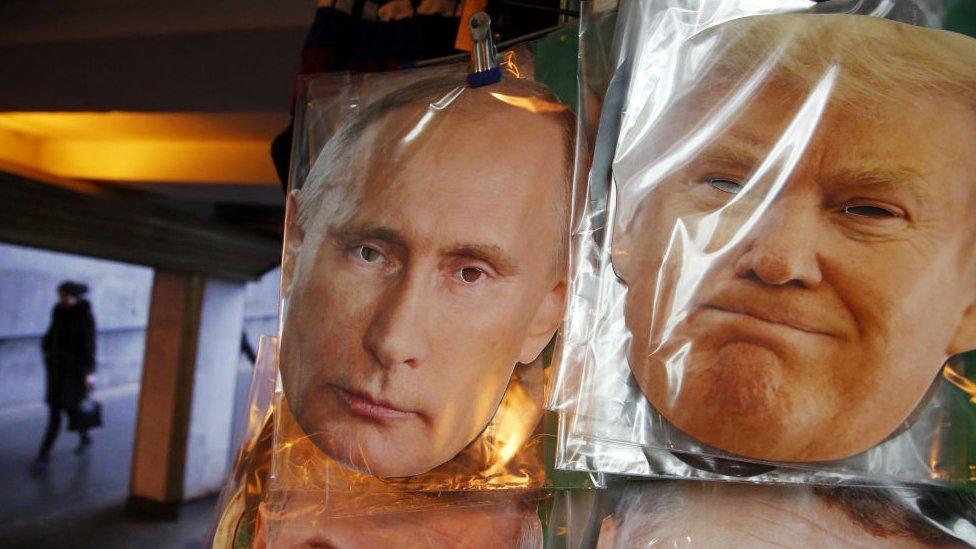Darya Dugina: Daughter of Putin ally killed in Moscow blast
- Published

Darya Dugina was vocal in her support for the Russian government over the invasion of Ukraine
The daughter of a close ally of Russia's President Vladimir Putin has been killed in a suspected car bombing.
Darya Dugina, 29, died after an explosion on a road outside Moscow, Russia's investigative committee said.
It is thought her father, the Russian philosopher Alexander Dugin, who is known as "Putin's brain", may have been the intended target of the attack.
Mr Dugin is a prominent ultra-nationalist ideologue who is believed to be close to the Russian president.
Alexander Dugin and his daughter had been at a festival near Moscow, where the philosopher gave a lecture on Saturday evening.
The "Tradition" festival describes itself as a family event for art lovers which takes place at the Zakharovo estate, where Russian poet Alexander Pushkin once stayed.
The pair were due to leave the venue in the same car, before Mr Dugin reportedly made a decision at the last minute to travel separately.
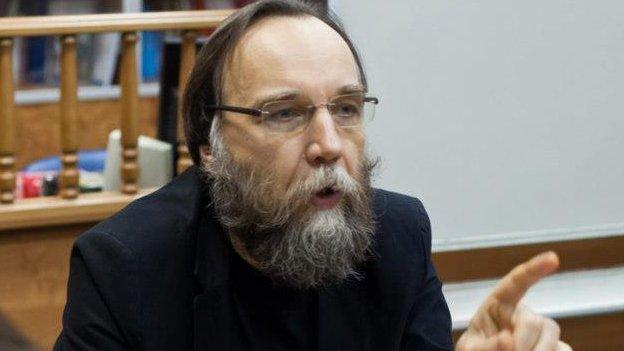
Alexander Dugin is credited with shaping President Vladimir Putin's worldview
Footage posted on Telegram appears to show Mr Dugin watching in shock as emergency services arrive at the scene of the burning wreck of a vehicle.
Investigators confirmed that Ms Dugina, who was driving the car, died at the scene near the village of Bolshiye Vyazemy.
They said an explosive device planted under the car went off and the vehicle caught fire. Forensic and explosive experts are investigating.
A Ukrainian official has dismissed accusations of Ukrainian involvement in the incident.
"Ukraine, of course, has nothing to do with this, because we are not a criminal state, which is the Russian Federation, and even less a terrorist state," said Mykhailo Podolyak, an adviser to President Volodymyr Zelensky.
Maria Zakharova, spokeswoman for Russia's foreign ministry, said in a Telegram post that if any Ukrainian link was found it would amount to "state terrorism".

Analysis
By Will Vernon, BBC Moscow
While Alexander Dugin is not a state official himself, he is nevertheless a symbolic figure in Russian politics.
His anti-Western, ultranationalist philosophy has become the dominant political ideology in Russia and has helped shape President Putin's expansionist foreign policy, most prominently on Ukraine.
Attention will now turn to who was behind this attack. Denis Pushilin, the "head" of the self-declared pro-Russian "Donetsk People's Republic", has already laid the blame on Ukraine, writing on Telegram: "Vile villains! The terrorists of the Ukrainian regime, trying to eliminate Alexander Dugin, blew up his daughter… In a car. We cherish the memory of Daria, she is a real Russian girl!"
Incidents like this will make officials in Moscow nervous, especially in the aftermath of a series of explosions and attacks in occupied Crimea and in Russian regions near the border with Ukraine.
Kremlin propaganda consistently stresses how Vladimir Putin has brought security and stability in Russia following the turbulent 1990s, when car bombs and assassinations were commonplace. This car bomb in the Russian capital undermines that narrative.

Despite not holding an official position in government, Alexander Dugin is believed to be a close ally of the Russian president and has even been branded "Putin's Rasputin".
Darya Dugina was herself a prominent journalist who vocally supported the invasion of Ukraine.
Earlier this year she was sanctioned by US and UK authorities, external, who accused her of contributing to online "disinformation" about Russia's invasion.
In May, she described the war as a "clash of civilisations" in an interview, external and expressed pride in the fact that both she and her father had been targeted by Western sanctions.
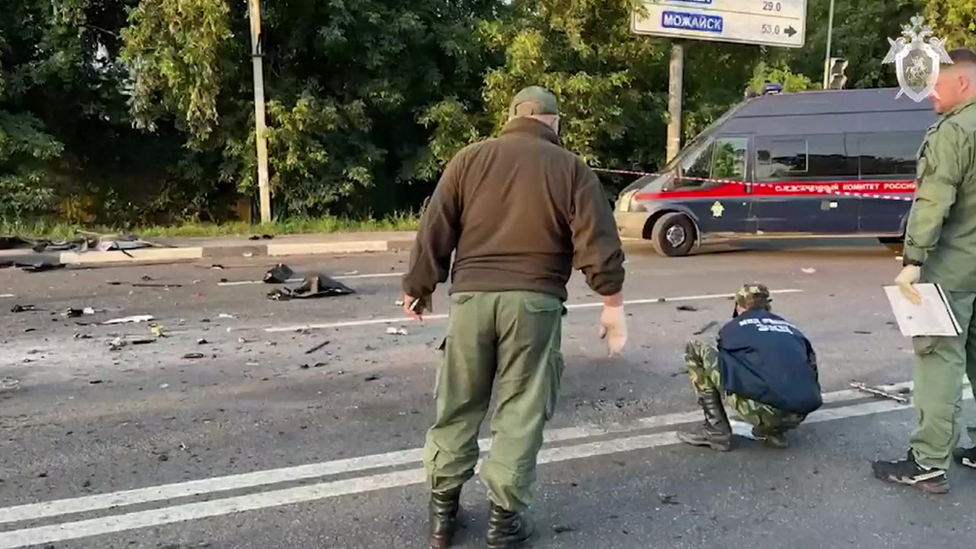
Russian investigators at the scene of the vehicle explosion
Alexander Dugin was sanctioned by the US in 2015 for his alleged involvement in Russia's annexation of Crimea.
His writings are said to have had a deep influence on Mr Putin and the philosopher is regarded as a chief architect of the ultra-nationalist ideology endorsed by many in the Kremlin.
For years, Mr Dugin has called on Moscow to assert itself more aggressively on the global stage and has supported Russian military action in Ukraine.
Related topics
- Published11 March 2015
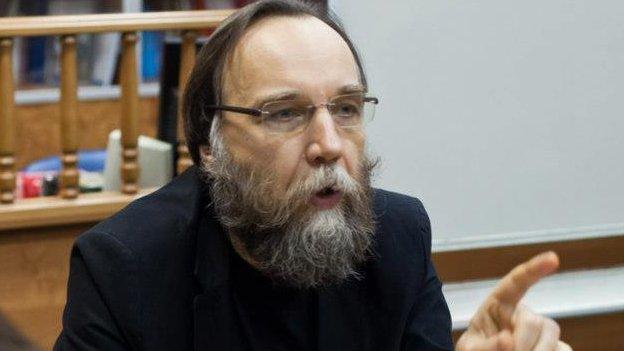
- Published10 July 2014
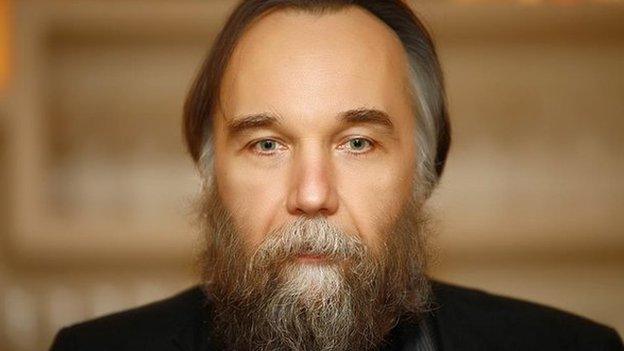
- Published25 October 2016
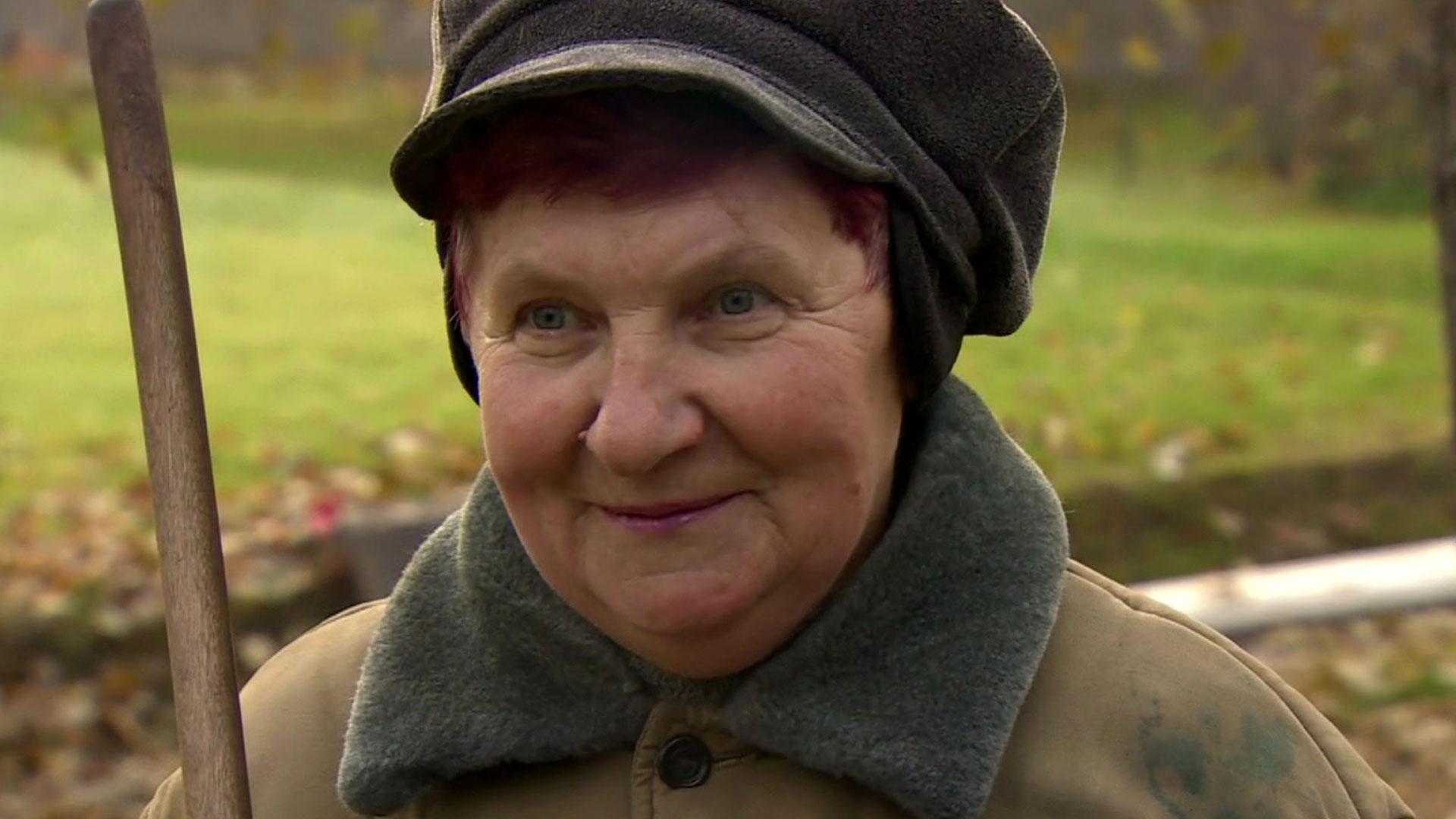
- Published16 January 2017
